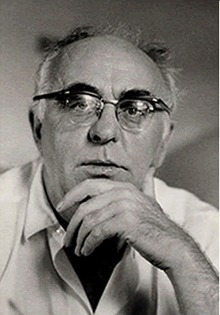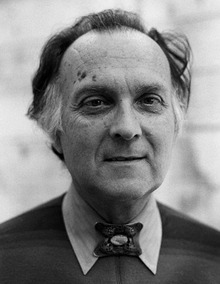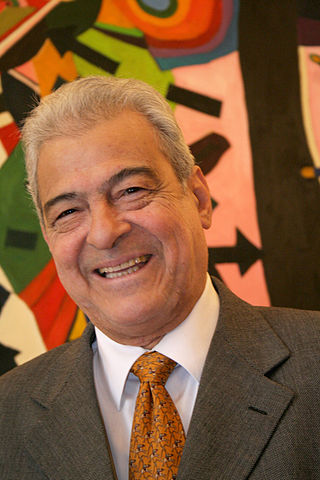Related Research Articles

Charles Olson was a second generation modernist American poet who was a link between earlier modernist figures such as Ezra Pound and William Carlos Williams and the third generation modernist New American poets. The latter includes the New York School, the Black Mountain School, and some of the artists and poets associated with the Beat generation and the San Francisco Renaissance.

Robert Edward Duncan was an American poet and a devotee of Hilda "H.D." Doolittle and the Western esoteric tradition who spent most of his career in and around San Francisco. Though associated with any number of literary traditions and schools, Duncan is often identified with the poets of the New American Poetry and Black Mountain College. Duncan saw his work as emerging especially from the tradition of Pound, Williams and Lawrence. Duncan was a key figure in the San Francisco Renaissance.

Lee Harwood was an English poet associated with the British Poetry Revival.
Christopher Logue, CBE was an English poet associated with the British Poetry Revival, and a pacifist.

Canto General is Pablo Neruda's tenth book of poems. It was first published in Mexico in 1950, by Talleres Gráficos de la Nación. Neruda began to compose it in 1938.
Robert L. Hass is an American poet. He served as Poet Laureate of the United States from 1995 to 1997. He won the 2007 National Book Award and shared the 2008 Pulitzer Prize for the collection Time and Materials: Poems 1997–2005. In 2014 he was awarded the Wallace Stevens Award from the Academy of American Poets.

Paul Blackburn was an American poet. He influenced contemporary literature through his poetry, translations and the encouragement and support he offered to fellow poets.

Ron Padgett is an American poet, essayist, fiction writer, translator, and a member of the New York School. Great Balls of Fire, Padgett's first full-length collection of poems, was published in 1969. He won a 2009 Shelley Memorial Award. In 2018, he won the Frost Medal from the Poetry Society of America.

Forrest Gander is an American poet, translator, essayist, and novelist. The A.K. Seaver Professor Emeritus of Literary Arts & Comparative Literature at Brown University, Gander won the Pulitzer Prize for Poetry in 2019 for Be With and is chancellor of the Academy of American Poets and a member of the American Academy of Arts and Sciences.

Jonathan Williams was an American poet, publisher, essayist, and photographer. He is known as the founder of The Jargon Society, which has published poetry, experimental fiction, photography, and folk art since 1951.
M. T. C. Cronin is a contemporary Australian poet.

Pablo Neruda was a Chilean poet-diplomat and politician who won the 1971 Nobel Prize in Literature. Neruda became known as a poet when he was 13 years old and wrote in a variety of styles, including surrealist poems, historical epics, political manifestos, a prose autobiography, and passionate love poems such as the ones in his collection Twenty Love Poems and a Song of Despair (1924).

Jorge Carrera Andrade was an Ecuadorian poet, historian, author, and diplomat during the 20th century. He was born in Quito, Ecuador in 1902. He died in 1978. During his life and after his death he has been recognized with Jorge Luis Borges, Vicente Huidobro, Gabriela Mistral, Pablo Neruda, Octavio Paz and Cesar Vallejo as one of the most important Latin American poets of the twentieth century.
Peter Riley is a contemporary English poet, essayist, and editor. Riley is known as a Cambridge poet, part of the group loosely associated with J. H. Prynne which today is acknowledged as an important center of innovative poetry in the United Kingdom. Riley was an editor and major contributor to The English Intelligencer. He is the author of ten books of poetry, and many small-press booklets. He is also the current poetry editor of the Fortnightly Review and a recipient of the Cholmondeley Award in 2012 for "achievement and distinction in poetry".

Antonio Alfonso Cisneros Campoy was a Peruvian poet, journalist and academic. He was born in Lima on 27 December 1942 and died there of lung cancer on 6 October 2012, aged 69.

Copper Canyon Press is an independent, non-profit small press, founded in 1972 by Sam Hamill, Tree Swenson, Bill O'Daly, and Jim Gautney, specializing exclusively in the publication of poetry. It is located in Port Townsend, Washington.
Robin Fulton is a Scottish poet and translator, born on 6 May 1937 on the Isle of Arran. Since 2011 he has published under the name Robin Fulton Macpherson.
Richard Berengarten is an English poet. Having lived in Italy, Greece, the US and the former Yugoslavia, his perspectives as a poet combine English, French, Mediterranean, Jewish, Slavic, American and Oriental influences. His poems explore historical and political material, inner worlds and their archetypal resonances, and relationships and everyday life. His work is marked by its multicultural frames of reference, depth of themes, and variety of forms. In the 1970s, he founded and ran the international Cambridge Poetry Festival. He has been an important presence in contemporary poetry for the past 40 years, and his work has been translated into more than 90 languages.
Paul Randolph Violi was an American poet born in Brooklyn, New York. He is the author of eleven books of poetry, including Splurge, Fracas, The Curious Builder, Likewise, and most recently Overnight. Violi was managing editor of The Architectural Forum from 1972–1974, worked on free-lance projects at Universal Limited Art Editions and as chairman of the Associate Council Poetry Committee, he organized a series of readings at the Museum of Modern Art from 1974 to 1983. He also co-founded Swollen Magpie Press, which produced poetry chapbooks, anthologies, and a magazine called New York Times. His art book collaborations with Dale Devereux Barker, most recently Envoy; Life is Completely Interesting, have been acquired by major collections. The expanded text of their first collaboration, Selected Accidents, Pointless Anecdotes, a collection of non-fiction prose, was published by Hanging Loose Press in 2002.

John Felstiner, Professor Emeritus of English at Stanford University, was an American literary critic, translator, and poet. His interests included poetry in various languages, environmental and ecologic poems, literary translation, Vietnam era poetry and Holocaust studies. John Felstiner died in February 2017 at the age of 80. He had been suffering from the effects of progressive aphasia at his time of death, at a hospice near Stanford.
References
- 1 2 "Nathaniel Tarn". Shearsman Books. Archived from the original on May 27, 2017. Retrieved June 21, 2017.
- 1 2 "Nathaniel Tarn entry: Stanford University Libraries, Stanford, California" . Retrieved March 10, 2011.
- 1 2 3 "Nathaniel Tarn Papers, Collection Guide". Online archive of California. California Digital Library. Retrieved June 21, 2017.
- 1 2 "Tarn, Nathaniel". Social Networks and Archival Context Cooperative Program. Institute for Advanced Technology in the Humanities, University of Virginia. Retrieved June 21, 2017.
- 1 2 "Nathaniel Tarn". Poetry Foundation. Retrieved June 21, 2017.
- ↑ "Tarn, Nathaniel". Library of Congress Name Authority File. Library of Congress . Retrieved June 21, 2017.
- ↑ "Traductions des ouvrages de Segalen".
- 1 2 Zamir, Shamoon (2010). "Scandals in the House of Anthropology: Notes towards a reading of Nathaniel Tarn". Jacket. 39.
- ↑ Behlen, Beatrice (2017). "Chapter 14:Le Noir Étant la Dominante de Notre Vêture… The Many Meanings of the Color Black in Post-War Paris". In Faiers, Jonathan; Westerman Bulgarella, Mary (eds.). Colors in Fashion. London, New York: Bloomsbury Publishing. p. 177. ISBN 978-1-474-27368-8. OCLC 952470499.